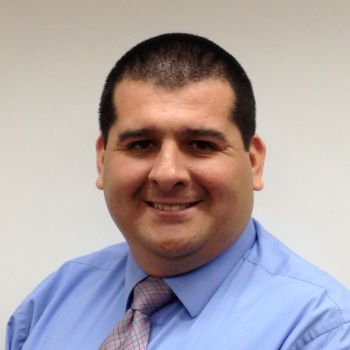| projects |
|
| Faculty Profile |
|
Phone
313-577-0879
Office Address
9248 Scott Hall
540 E. Canfield
Detroit, MI 48201
Department
Pathology
Research Description
Our laboratory conducts research focused on the elucidation of the molecular mechanisms that control the intercellular signaling governing organogenesis and cancer development. We are particularly interested in the study of cell-to-cell communication pathways in breast and lung development, and in defining how deregulation of these signals leads to neoplastic conversion. We use highly innovative mouse genetic approaches to define the cell-specific roles of the Notch pathway in breast and lung biology by modulating Notch signaling activity in specific cell populations of the mammary and lung epithelia. Our laboratory is also interested in defining the cellular origins of the distinct subtypes of breast and lung cancers, and in establishing the role of Notch signaling as a downstream mediator of nuclear receptor signaling in the breast epithelium, particularly in mammary gland stem cells. Our laboratory has a strong interest in developing of novel technologies for lineage analysis of normal and cancer stem cells, and in the identification of pharmacologically targetable pathways to treat breast and lung cancers.
Selected publications
Sharif A, Shaji A, Chammaa M, Pawlik E, Fernandez-Valdivia R. Notch Transduction in Non-Small Cell Lung Cancer. Int. J. Mol. Sci. 2020;21,5691.
Fernandez-Valdivia R, Chammaa M, Goebel D, John I, Beydoun R. Expression of Notch Receptors and Ligands in the Coccygeal Body. Neuro Endocrinol Lett. 2019;40:184-94.
Hai L, Szwarc MM, Lonard DM, Rajapakshe K, Perera D, Coarfa C, Ittmann M, Fernandez-Valdivia R, Lydon JP. Short-term RANKL exposure initiates a neoplastic transcriptional program in the basal epithelium of the murine salivary gland. Cytokine. 2019;123:154745.
Chammaa M, Malysa A, Redondo C, Jang H, Chen W, Bepler G, Fernandez-Valdivia R. RUMI is a novel negative prognostic marker and therapeutic target in non-small-cell lung cancer. J Cell Physiol. 2018;233:9548-62.
Dzinic SH, Bernardo MM, Li X, Fernandez-Valdivia R, Ho YS, Mi QS, Bandyopadhyay S, Lonardo F, Vranic S, Oliveira DS, Bonfil RD, Dyson G, Chen K, Omerovic A, Sheng X, Han X, Wu D, Bi X, Cabaravdic D, Jakupovic U, Wahba M, Pang A, Harajli D, Sakr WA, Sheng S. An Essential Role of Maspin in Embryogenesis and Tumor Suppression. Cancer Res. 2017;77:886-96.
Education/Training
Biology Major Degree (1998): Universidad Nacional de San Agustin de Arequipa, Peru
Advanced Studies Title in Histology – Master (2001): Universidad Autonoma de Madrid, Spain
PhD Cellular Biology and Genetics (2006): Universidad Autonoma de Madrid, Spain
Postdoctoral Fellowship (2007-2011): Institute of Molecular Medicine, University of Texas at Houston, Texas
